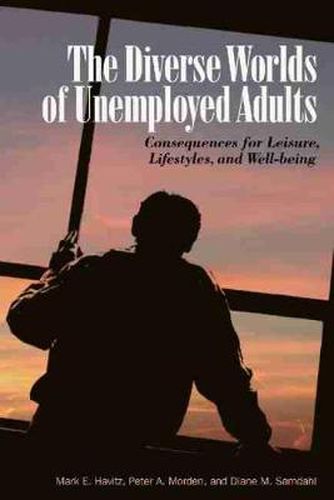Readings Newsletter
Become a Readings Member to make your shopping experience even easier.
Sign in or sign up for free!
You’re not far away from qualifying for FREE standard shipping within Australia
You’ve qualified for FREE standard shipping within Australia
The cart is loading…






Multi-method research study shows why leisure activities are as important for the unemployed as they are for the employed. Can someone who is unemployed experience leisure, or does that seem like a contradiction in terms? If unemployed people can experience leisure, how might it mitigate the negative effects of unemployment? And what form, then, would that leisure take? The relationship between leisure and unemployment has not received the attention it merits, especially in North America. Because research on leisure and unemployment must cross over areas of study, as well as theoretical perspectives, it can often seem conflicting and inconclusive. Yet the need for an understanding of that relationship remains. This groundbreaking book addresses that need. The authors describe the sometimes surprising results of their multi-method study of the effects of unemployment on leisure, lifestyle, and well-being within Canada, and integrate those results with literature collected worldwide into a comprehensive picture. Using in-depth interviews, quantitative experience sampling, and standardised questionnaire data, this fascinating book provides ample evidence that the lived experiences of the unemployed are incredibly diverse, and the need for leisure is as intense for them as for the employed. The authors also pinpoint changes in public policy and social service agency management at local, provincial, and federal levels that will better serve unemployed people and their dependants, and enable them to use leisure activities to improve their lives.
$9.00 standard shipping within Australia
FREE standard shipping within Australia for orders over $100.00
Express & International shipping calculated at checkout
Multi-method research study shows why leisure activities are as important for the unemployed as they are for the employed. Can someone who is unemployed experience leisure, or does that seem like a contradiction in terms? If unemployed people can experience leisure, how might it mitigate the negative effects of unemployment? And what form, then, would that leisure take? The relationship between leisure and unemployment has not received the attention it merits, especially in North America. Because research on leisure and unemployment must cross over areas of study, as well as theoretical perspectives, it can often seem conflicting and inconclusive. Yet the need for an understanding of that relationship remains. This groundbreaking book addresses that need. The authors describe the sometimes surprising results of their multi-method study of the effects of unemployment on leisure, lifestyle, and well-being within Canada, and integrate those results with literature collected worldwide into a comprehensive picture. Using in-depth interviews, quantitative experience sampling, and standardised questionnaire data, this fascinating book provides ample evidence that the lived experiences of the unemployed are incredibly diverse, and the need for leisure is as intense for them as for the employed. The authors also pinpoint changes in public policy and social service agency management at local, provincial, and federal levels that will better serve unemployed people and their dependants, and enable them to use leisure activities to improve their lives.